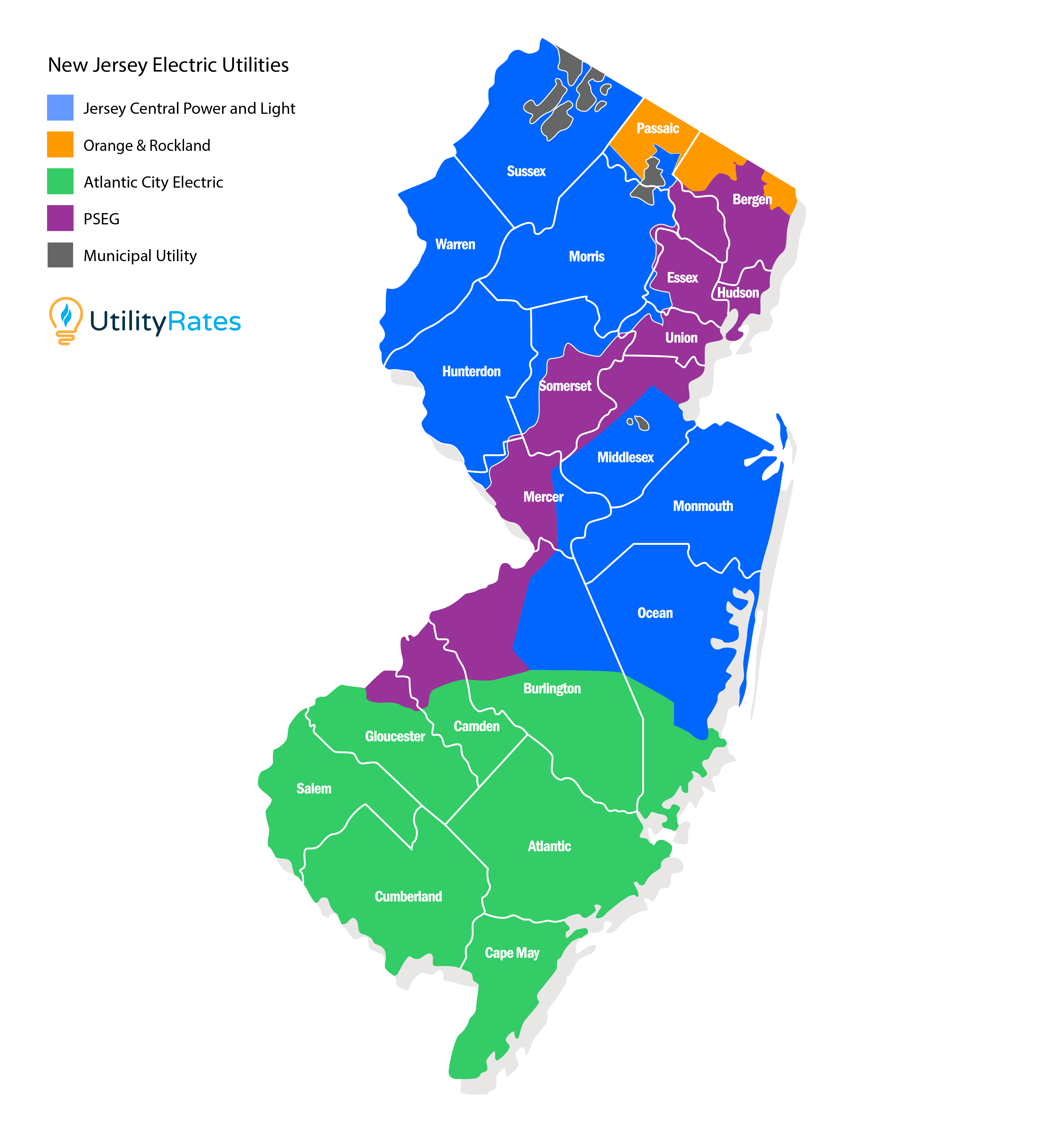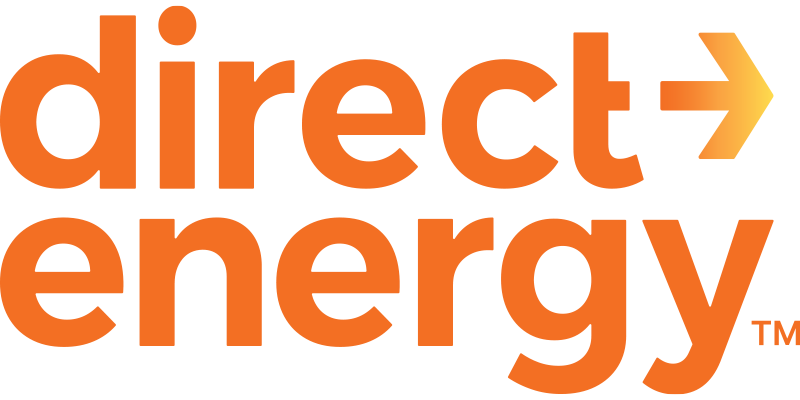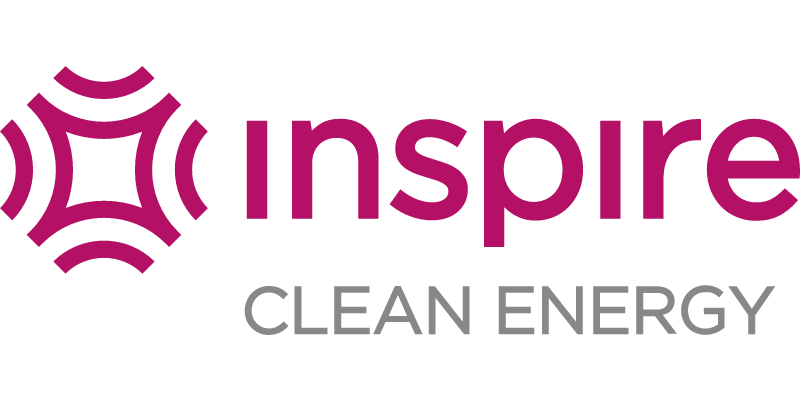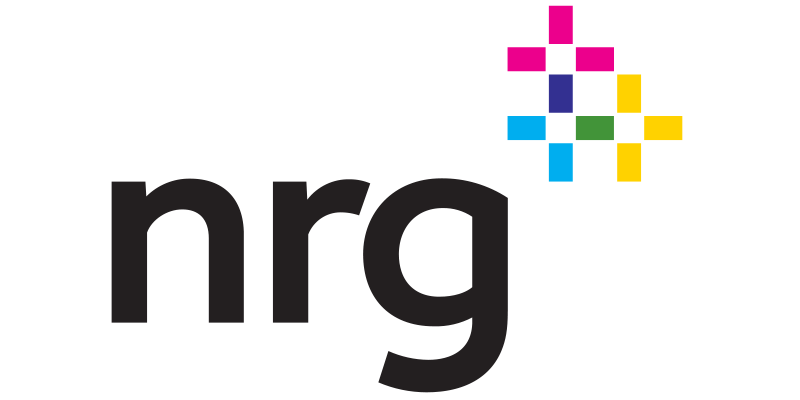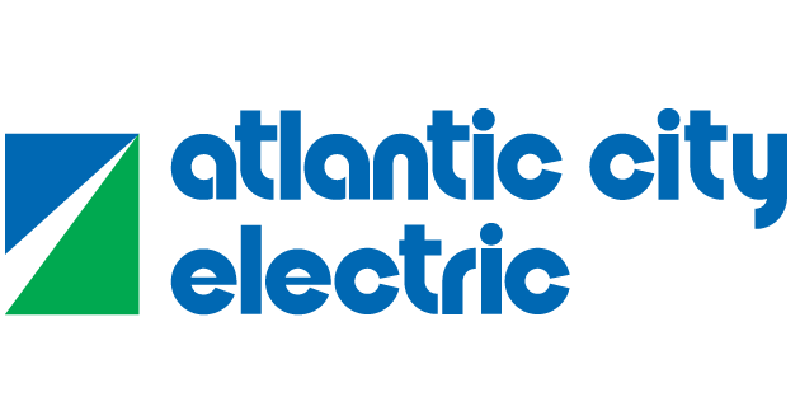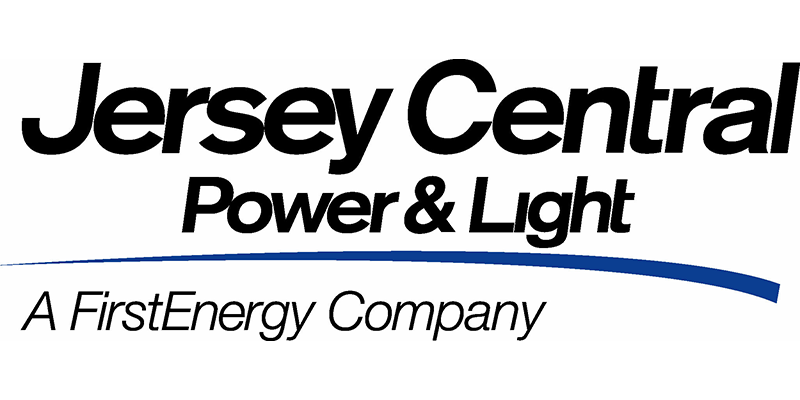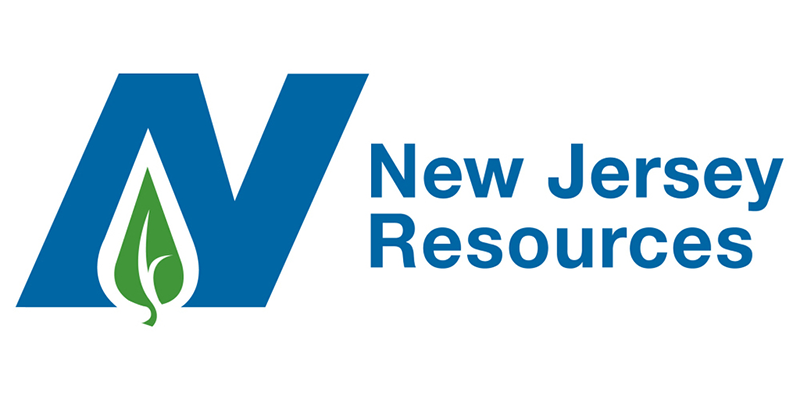Compare the Best New Jersey Electricity and Natural Gas Rates
Find the lowest Electricity and Natural Gas rates in New Jersey.
Select a Service Type and Enter Your ZIP Code to Get Started
Rated 5/5
Based on over 41,000 reviews
40%
Save up to 40%
100+
Electricity Providers
40+
Natural Gas Providers
Recommended Electricity Plans
Recommended Electricity Plans
New Jersey Electricity and Natural Gas Utilities Service Area Map
New Jersey has four major electric utilities, that are responsible for the poles and wires, meters, distribution and billing of electricity service to your home and businesses
New Jersey Electricity Utilities
- square Jersey Central Power and Light
- square Orange and Rockland
- square Atlantic City Electricity
- square PSEG
- square Municipal Utilities
New Jersey has four major natural gas utilities. They are responsible for the pipes, meters, distribution and billing of natural gas service to your home and businesses
New Jersey Natural Gas Utilities
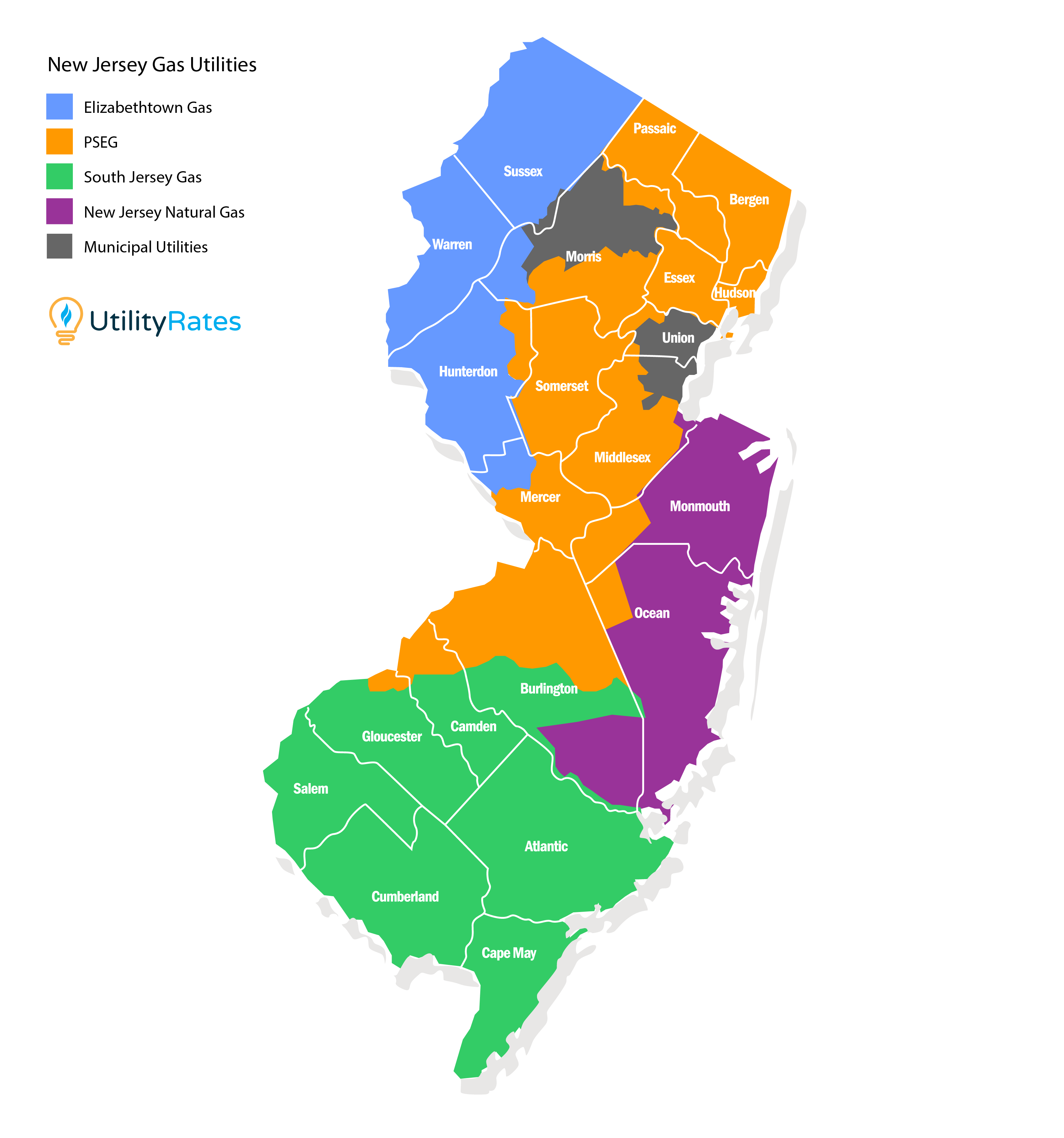
- square New Jersey Natural Gas
- square South Jersey Gas
- square PSEG
- square Elizabethtown Gas
- square Municipal Utilities
Compare New Jersey Electricity and Natural Gas Companies
Constellation is the US's largest producer of carbon-free energy and a leader of retail supply of power, natural gas and home services for residences across the nation. Headquartered in Baltimore, their generation fleet produces enough energy to power 15 million homes and is helping to accelerate the nation's shift to clean energy with more than 32,400 megawatts of capacity and annual output that is 90 percent carbon-free. Constellation serves approximately 2 million residential, public sector and business customers, including three-fourths of the Fortune 100.
Green Mountain Energy Company was founded in 1997 with the mission to change the way power is made. As the longest serving renewable energy retailer in the country, Green Mountain is a green power pioneer.
How to Start NJ Electricity & Natural Gas Service
The first two things you'll need to set up in your new home in New Jersey is electricity and natural gas service. That's good news because you can choose your own electricity and natural gas suppliers in New Jersey.
While this sounds tricky, it isn't. You can choose who supplies your electricity and natural gas, but your local electric or gas utility still delivers the energy. They keep the poles, wires, and pipes working safely and reliably. They're also the one you call to set up service, report downed power lines and outages to, and sends your monthly bill.
New Jersey has a total of 4 main investor owned utilities for electricty and 4 for natural gas. So, we'll show you how to start up service to your home, quickly and easily.
How To Start Electricity Service In New Jersey
New Jersey has four electric utlities that serve broad areas of the state. For example -
- If you live in Asbury Park, Burlington, Morristown, or South Amboy then your electric utility is Jersey Central Power & Light (FirstEnergy).
- If you are from south Jersey and your home lies in Atlantic City,Bridgeton Glassboro, or Ocean City, then your electric utility is Atlantic City Electric.
- If your home is in northern New Jersey at Closter, Oakland, or West Milford, then you get power through Orange and Rockland Utility.
- Or if you live in Camden, Trenton, New Brunswick, Passaic, or Perth Amboy, then your electic utility is Public Service Electric and Gas(PSEG)
Once you have determined who your local utility is, you can head to their webpage to fill out a start service request. You'll need be ready to provide your new address, move in date, and identifying information.
- JCP&L, go to their Start, Stop,& Move section. Changes to service can be made up to 90 days in advance, and cannot be on weekends or holidays.
- Atlantic City Electric customers, service requests go through their Start, Stop,& Move page. These take at least 3 days process. You can also file a request 120 days (3 months) in advance!
- Orange and Rockland customers, you'll head to the Start Service page.
- PSEG, you can either go to their Start Service page. Or you can tap the "Moving" button on their home page to launch their start/stop service interaction.
How To Start Natural Gas Service In New Jersey
New Jersey has four main natural gas utlities with large service areas in the state. As with electricity, you can shop third party suppliers who will sell you gas but the local natural gas utility is the one that delivers it to your home and sends you the monthly service bill.
- If you live in the northern New Jersey towns of Elizebeth, Phillipsburg, Rahway, and Sussex, then Elizabethtown Gas delivers your gas.
- If you live in Bergen, Burlington, Camden, or Jersey City, then you get your gas delivered by Public Service Electric and Gas(PSEG).
- For those living in Asbury Park, Lakehurst, Rockaway, or Tuckerton your natural gas utility is New Jersey Natural Gas.
- And for south New Jersey customers in Atlantic City, Vineland, or Salem River, you get your gas delivered by South Jersey Gas.
Just like setting up electricity service, once you know which one is your natural gas utility, visit their website from the list below to start service.
- Elizabethtown Gas
- New Jersey Natural Gas
- South Jersey Gas
- PSEG Start Service page. You can also just tap the "Moving" button on their home page to launch their start/stop service interaction.
Information You Need To Start Service
For most New Jersey utilities, you'll need to have the following ready to request service:
- Your address (this can't be P.O. Box)
- Phone number
- Email address
- The date you'd like to start service
- Social Security number. Note - if you are a new customer, the utility may require you to pay a security deposit.
NJ's Price To Beat: What Is A Basic Generation Service?
New Jersey utilities are required to provide a Basic Generation Service (BGS) for customers who do not, or have not shopped for a third party supplier. The BGS is determined every year usually by a descending clock auction format where the lowest bid wins. This way, prices that BGS customers pay are consistent with what the utility faces in the competitive wholesale marketplace. This means the BGS is a "pass through rate", meaning you pay what the utility pays for the electricity supply.
New BGS rates go into effect every June 1st. The rates changes on October 1st to adjust for shifts in seasonal costs.
The local utility also becomes the energy supplier should the third party supplier stop service NJ customers. This way, your power stays on.
Third Party Suppliers, however, have more options to find deals. They can use a mix of contracts with generators or bargain for electricity prices on the PJM wholesale market. By using all these methods, most suppliers can offer cheap rates that beat the BGS price.
For this reason, comparing TPS plans will usually be your cheapest option. Plus, with different plan term lengths, you can find a plan length that works with your needs; not your utility's.
The Current BGS Offers
Switching Your Energy Supplier In New Jersey
Grab a copy of your most recent bill
You'll need your billing information and account numbers from your utility.
Jersey Company Power & Light (FirstEnergy) Bill
Atlantic City Electric Bill
Orange and Rockland Utility Bill
Public Service Electric and Gas(PSEG)-New Jersey Bill
Now you're all set to swtich providers in no time.
1. Compare Rates
You can find third party suppliers on UtilityRates.com by just using your zipcode!
Compare TPS plans, rates, and terms to chose a TPS offer that match your needs.
2. Sign Up
After you've compared plans and chosen a TPS plan, you can sign up directly through UtilityRates.com.
Here's whee youll need to provide your utility account number and service info.
3. Confirmation the Switch
That's it! No fees. No technician appointments. In New Jersey, the suppliers and utilities take care of the heavy lifting. Your utility or current supplier will later send you a written confirmation of the switch.
Keep in mind that the actual change will not take effect until your next meter read. So, depending if you switch right after your next meter read, your switch may take an extra billing cycle to finalized.
Pro-Tip - you have the right to recieve a one page summary of your contract with your new TPS. It will include what happens when your contract exprires. Knowing this info may help save you some money later on!
The History Of Deregulation In New Jersey
Before the Electric Discount and Energy Competition Act of 1999, the state's energy utility monopolies had run $10 billion worth of electricity and natural gas markets for decades. In 1999, business owners complained that New Jersey's energy rates were 50 percent higher than the national average. This cut into job growth and raised living costs.
Restructuring New Jersey's energy markets, however, would not be easy. When the act was passed, critics said it favored the state's three dominant electricity suppliers and forced residential customers to pay for the $9 billion lost by the utilities' investments in nuclear powerplants for 20 years.
New Jersey has long consumed more electricity than it produced. About one-fifth of its power comes by way of the PJM grid from generators in other states. However, in 1999, lawmakers from both sides hammered out rules that encouraged renewable energy projects and to generate power in a more environmentally friendly way. As a result, deregulation changed rules so that any energy company, fossil or renewable, could sell electricity to New Jersey consumers.
Today, New Jersey has eliminated all of its coal power plants. And though both natural gas and nuclear still make up most of the state's generator fleet, nearly 5% of all power comes from green sources, specifically wind and solar.
Even though their old utility still delivers energy (and sends the bill) to their homes, deregulation allows New Jersey consumers to choose where they get their energy supply from. They can choose green energy plans that sell energy from renewable sources or from zero-carbon nuclear power plants. They can also now choose to buy power or natural gas from third-party suppliers or to go with the default rate set by the state's BPU and local utilities.
Choosing The Rate For You
Shopping for your energy rate also allows you to find the cheapest option that suits your home's needs. Because the BGS rate is determined by a cumbersome auction process, it doesn't always promise customers the lowest prices. However, by comparing third part suppliers, customers can usually find plans that offer more than rates that beat the BGS.
Utilities Vs Third Party Suppliers
Due to deregulation, there are some key differences between utilities and third party suppliers (TPS) in New Jersey. You can still get energy through your utilities and they send you the bill. However, the biggest difference is in how TPS and utilities supply you with energy.
New Jersey Utilities
New Jersey utilities act primarily as distributers. They maintain the lines, and are the ones you call if you experience a power outage in your area. Utilities control the flow of electricity from all suppliers. The Basic Generation Service is for consumers who do not or have not shopped for a third party supplier. The Basic Generation Service is a "pass through rate"; customers pay what the utility pays. However, New Jersey utilities must rely on a a descending clock auction format where the lowest bid wins. And while it can produce good results, it's not very market-agile and it also depends on companies submitting low bids.
Third Party Suppliers
Third party suppliers have nothing to do with the direct flow of electricity into your home. But, they can use many more options to find better energy supply deals. They are agile enough to use a mix of contracts with generators to get low prices. They can also bargain on the PJM wholesale market with a range of generating companies (large and small) to provide supply. So, through all these buying tactics, most suppliers can offer cheap rates that beat the BGS price.
And because TPS compete with each other for customers, customers can shop to find low priced plan, or even a 100% green energy plan.
Compare New Jersey Natural Gas and Electricity Utility Rates and Save
Ready to choose your energy rate?
Enter your ZIP code to explore the best energy plans in your area. Compare energy rates side by side, and choose the one that fits your home and budget.
